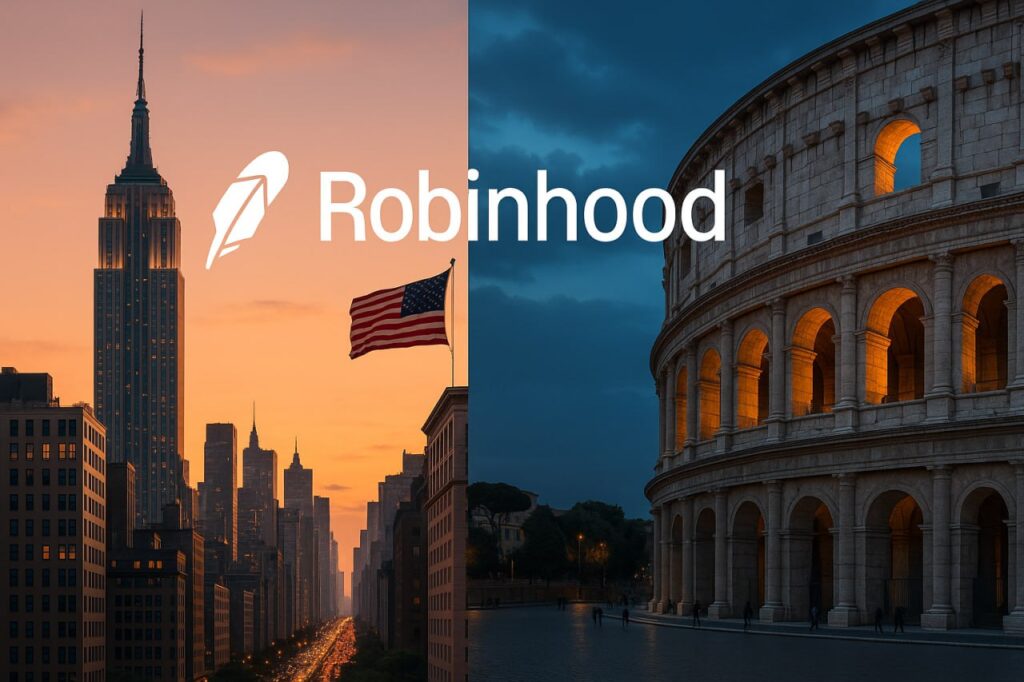Robinhood makes its move toward European blockchain adoption
Robinhood, the popular American trading platform, is building a new blockchain designed to allow tokenized trading of U.S. assets in Europe. This marks a major strategic shift as the company embraces Web3 to gain a foothold in one of the most rapidly evolving crypto and blockchain markets.
The move was unveiled by Johann Kerbrat, general manager of Robinhood Crypto, during the Crypto and Digital Assets Summit in London. According to Kerbrat, the company aims to use blockchain technology to offer 24/7 trading of U.S. assets like stocks — bypassing the traditional market limitations of business hours and settlement times.
Why Europe?
- Regulatory clarity: Europe’s Markets in Crypto-Assets (MiCA) framework offers a clearer regulatory path compared to the U.S., which remains fragmented and uncertain in its crypto policy.
- Faster innovation adoption: European markets are rapidly integrating digital asset infrastructure, including tokenized securities and real-world asset (RWA) protocols.
- New customer base: Robinhood sees Europe as an entry point for its blockchain ambitions, targeting tech-savvy investors and early crypto adopters.
What’s coming?
- A proprietary blockchain: Robinhood is building its own blockchain infrastructure to host tokenized U.S. assets. This gives it full control over speed, fees, and user experience.
- Tokenized trading of stocks and more: Investors in Europe will be able to trade fractionalized, tokenized shares of U.S. companies — potentially without needing to interact with traditional brokerage accounts.
- DeFi and self-custody integration: The new system will likely integrate wallet services and offer users the option to self-custody their assets, aligning with broader trends in decentralized finance.
Implications for the crypto and RWA market
Robinhood’s announcement is part of a broader trend of real-world asset tokenization, where traditional financial products like stocks and bonds are moved onto blockchain rails for greater efficiency and access. This could:
- Lower entry barriers for international investors
- Increase liquidity and market availability for U.S. equities
- Put pressure on traditional exchanges and brokers to modernize
Conclusion
Robinhood is betting big on blockchain — and on Europe. As U.S. regulators stall crypto innovation, platforms like Robinhood are turning to more welcoming jurisdictions to roll out the next phase of financial infrastructure. If successful, this could radically transform how global investors access U.S. markets, using blockchain to make trading faster, cheaper, and always available.
